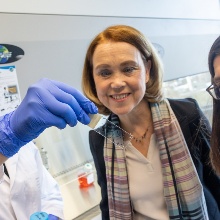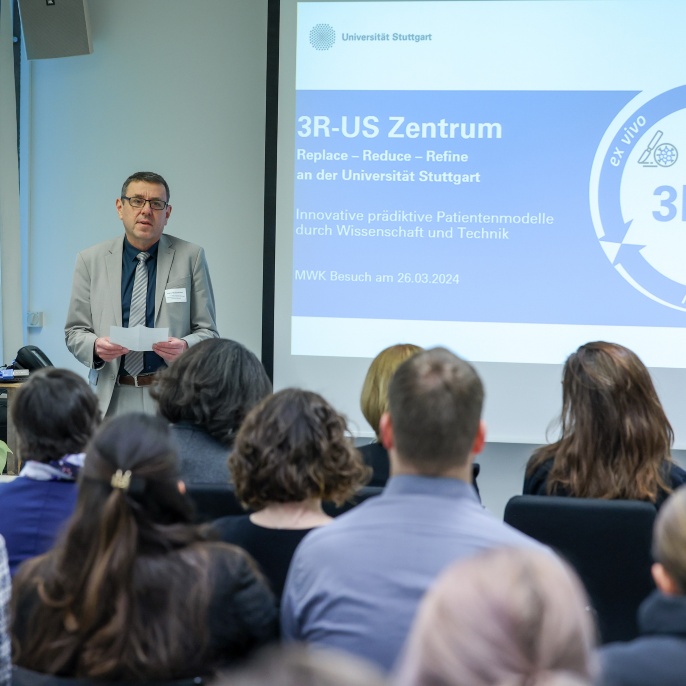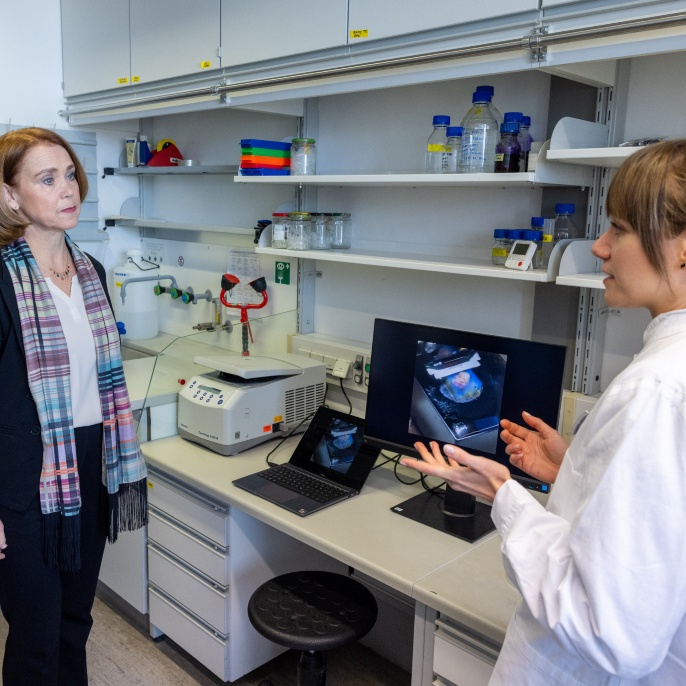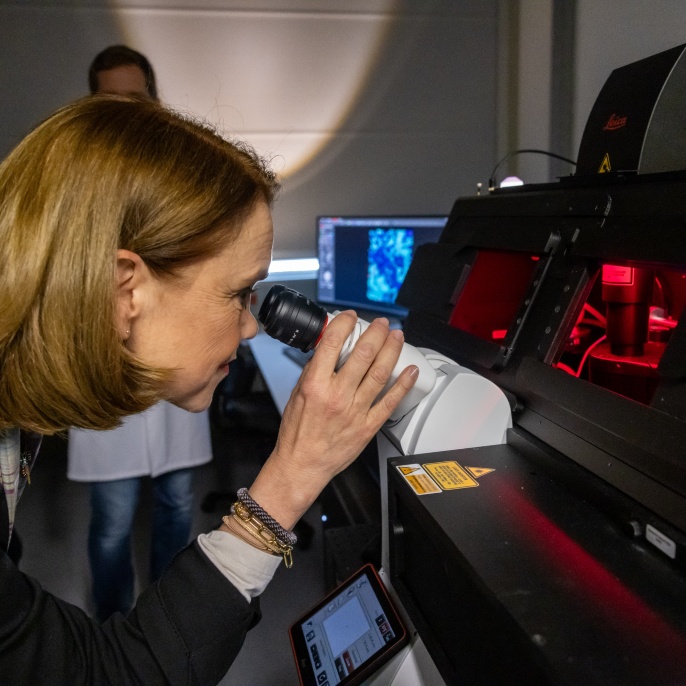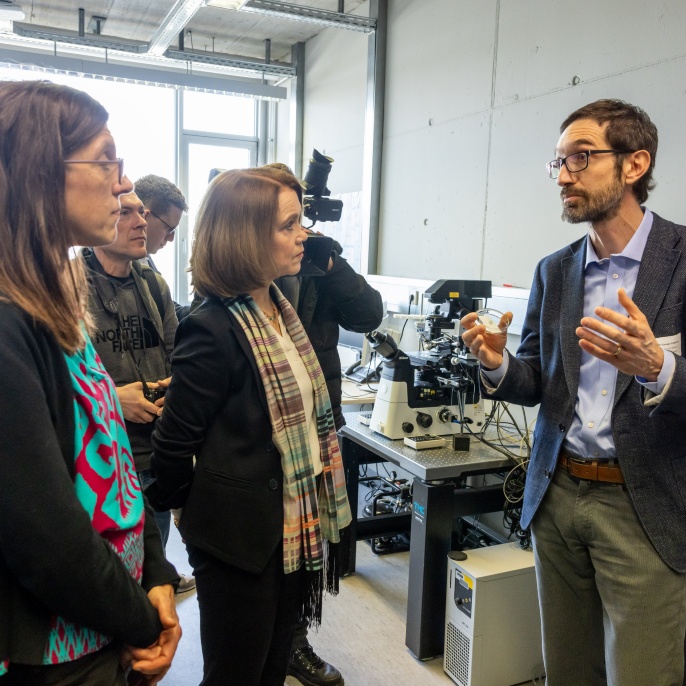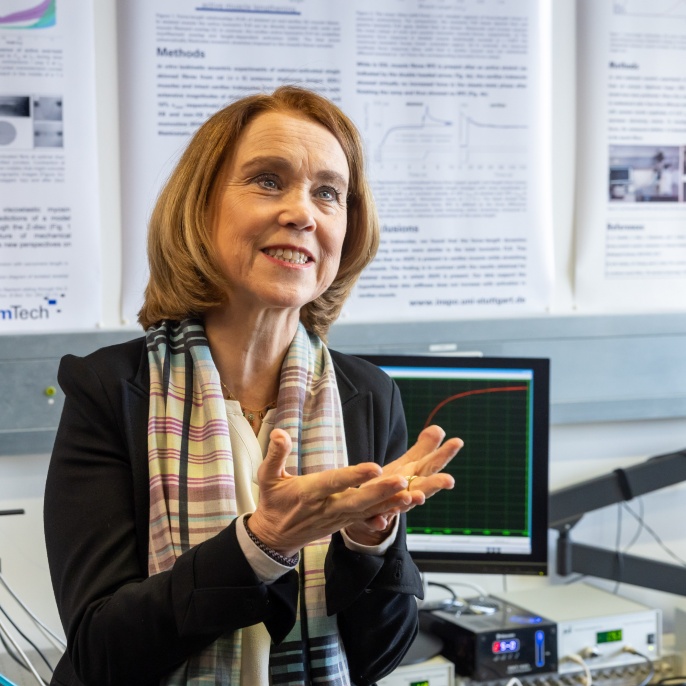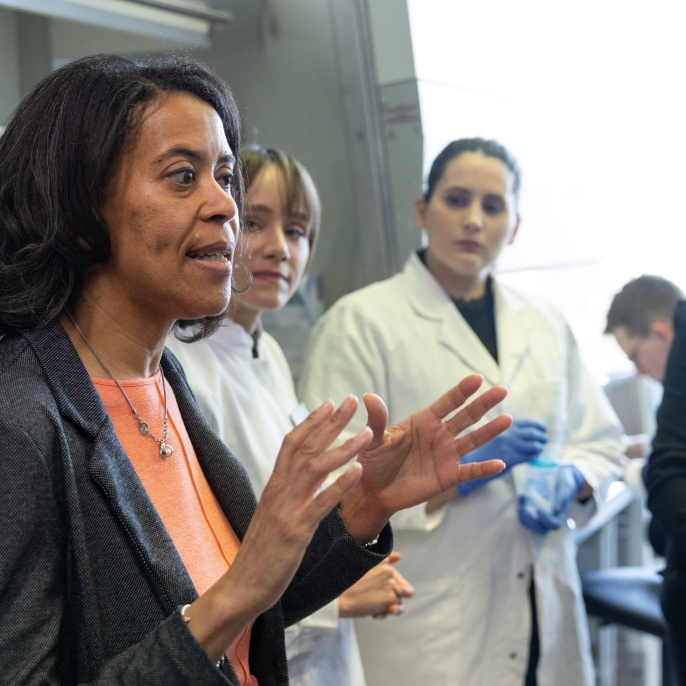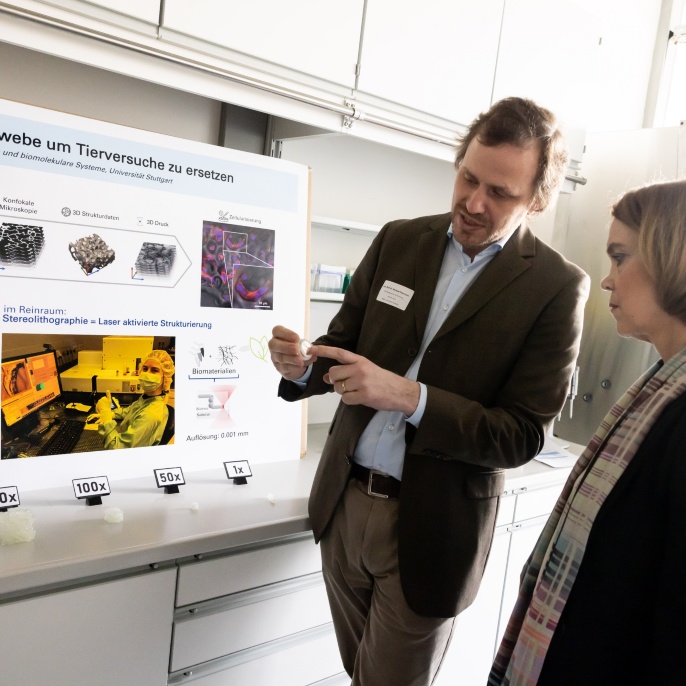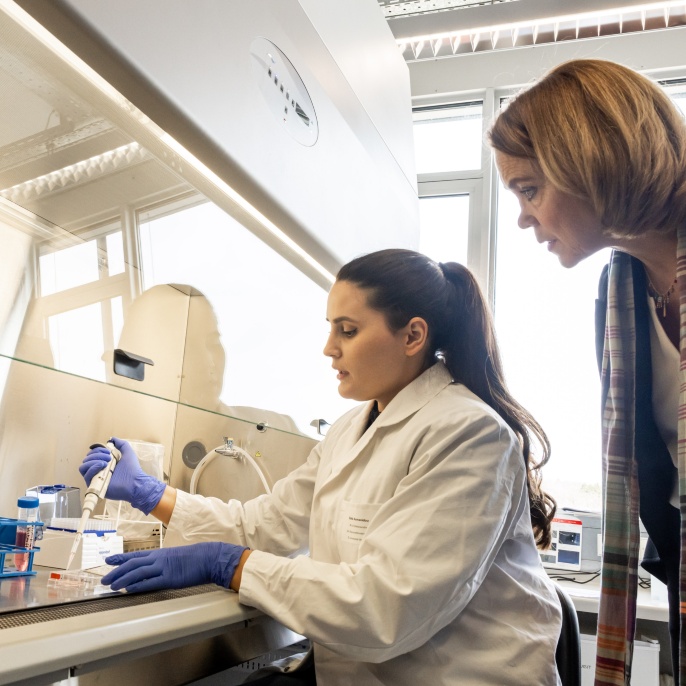3R stands for "Replacement", "Reduction" and "Refinement". During her visit to the 3R centers in Stuttgart and Mannheim, Olschowski emphasized that the 3R network plays a pivotal role in enhancing animal welfare in research and teaching. It actively promotes the advancement and implementation of alternative methods to animal testing. "The 3R network demonstrates that more animal welfare and better research are not mutually exclusive but rather interconnected," stated the Minister.
Taking special responsibility for animal welfare
As a location with a high concentration of biomedical research facilities and pharmaceutical and chemical companies, Baden-Württemberg has a special responsibility with regard to the protection of laboratory animals. The Ministry of Science has developed a sustainable strategy to further embed the 3R principle within Baden-Württemberg's research landscape. This initiative aims to enhance both the quality of biomedical research, which is one of the state's specific strengths, and animal welfare in research and teaching. To achieve this, the Ministry intends to bolster existing and complementary initiatives in the field of "alternatives to animal testing" across various locations in Baden-Württemberg. These efforts will involve enhancing networking capacities and improving the visibility of these activities.
Testing possible new cancer remedies
The Stuttgart 3R Center is currently focusing on projects involving alternative methods for testing agents to combat cancer. Oncologists from the Robert Bosch Hospital in Stuttgart are working together with scientists from the Institute of Cell Biology and Immunology (IZI) and the Institute of Biomaterials and Biomolecular Systems (IBBS) to develop methods for cultivating tumor tissue, producing tumor models that replicate the complexity of human tissue and mathematical models that enable improved predictions of the efficiency of active agents in combatting cancer. In the 3R-Tissue Laboratory, the researchers present 3D tumor cultures and 3D bioprinting processes of complex tissues. Plant tissues are also used as blood circulation models.
Promoting young talent and networking
The Stuttgart 3R Center has developed a platform that makes it possible to test cancer drugs using the new methods. "In developing valid alternatives to animal testing for research and future clinical applications, we pay particular attention to training young scientists at the interface of biomedical sciences and technology," says Prof. Monilola Olayioye, scientist at IZI and coordinator of the center. In addition to research and doctoral qualifications, students are also offered additional specialized courses. Furthermore, the new 3R-BioMedicUS initiative unites experts from science and technology to advance animal-free research methods, broaden the spectrum of techniques, and adapt them for testing novel biotherapeutics.
About the 3R Network
Since 2020, and in collaboration with the participating universities, the Ministry of Science has been providing support for the establishment of the 3R network, allocating a total of up to 6.9 million euros. This funding has facilitated the creation of centers in Tübingen, Constance, Stuttgart, and the Rhine-Neckar region (Mannheim/Heidelberg). During her visit, Minister Olschowski announced that the state will make the centers in Mannheim and Stuttgart permanent from 2025.
Further information
Although numerous alternative methods are already in use, it is not yet possible to completely replace animal testing in research. In addition, alternative methods often only reproduce partial aspects of the extremely complex processes in the human body. For this reason, research will not be able to completely dispense with live animal testing in the foreseeable future, especially when it comes to more complex issues such as cognition or neuropsychiatric diseases.


